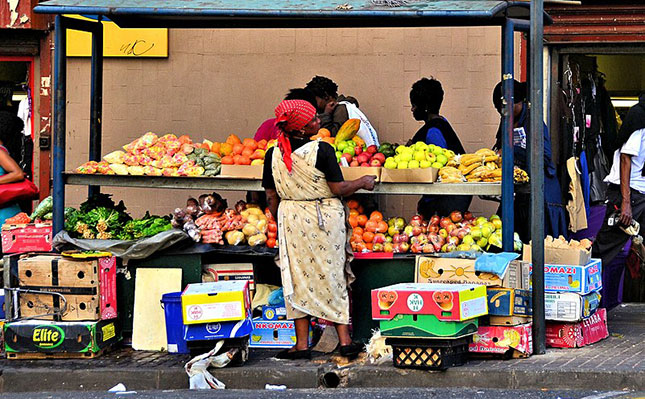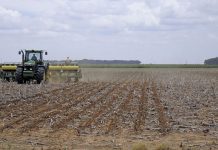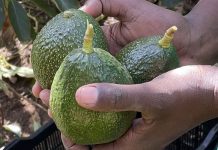
Photo: Ossewa, Wikimedia Commons
One of the consequences of the COVID-19-related lockdown regulations was that many women working as informal traders have been “locked out” of their livelihoods.
Speaking during a webinar presented by the Institute for Poverty, Land and Agrarian Studies (PLAAS) at the University of the Western Cape, Themakholo Mathebula of the Mahlathini Development Foundation in KwaZulu-Natal, said there had been varied effects for different communities.
READ Pineapple export troubles eased by demand from home-brewers
She explained that of the farmers she worked within the Midlands region, about 95% were women producing crops including maize, beans, cabbage, sweet potato and amadumbe.
“The maize is mainly produced for ‘green mealies’, which are sold to ‘bakkie’ traders and vendors.”
She said initial Level 5 restrictions had prevented traders and buyers from making regular purchases from these farmers, and those with crops ready for sale were unable to earn anticipated income.
In some cases, cabbages intended for school feeding programmes had been left to “dry out in the field”, for example.
“In terms of income, there were farmers who were really hard hit by Level 5 lockdown [regulations],” Mathebula said.
READ Ten ways to cut food waste – report
The easing of restrictions from Level 4 to Level 3 somewhat nullified this, but she highlighted growing concern about household food security that had changed from the positive outlook shared towards the end of March.
Another panellist, PhD researcher Malebo Moepi, who focussed on the informal fish trading economy, said it was important to note that women in trade was already facing numerous challenges.
However, this worsened during the pandemic, due to issues such as low food standards, market access, low personal hygiene standards, and other inherent challenges faced by street vendors.
“They operate along our streets; hence they do not have access to potable water, hand sanitisers, or masks that the government now requires us to wear.”
She highlighted health hazards such as fish of compromised quality, particularly because these traders did not have effective processing measures that could extend the shelf life of their product.
“Fish is perishable and this results in waste. So, they lose more fish, and as a result they lose more income,” she said.
In addition, many women had started adapting by growing more vegetable crops at home to reduce dependence on shop-bought produce. Others were now also “holding produce back” for children, or family members returning home due to job losses or other effects of the pandemic.
“Women have been instrumental in ensuring that their families have a constant uninterrupted supply of food,” she said.
She said the pandemic had highlighted the need to strengthen the rural economy, and support women involved in agricultural activities.








